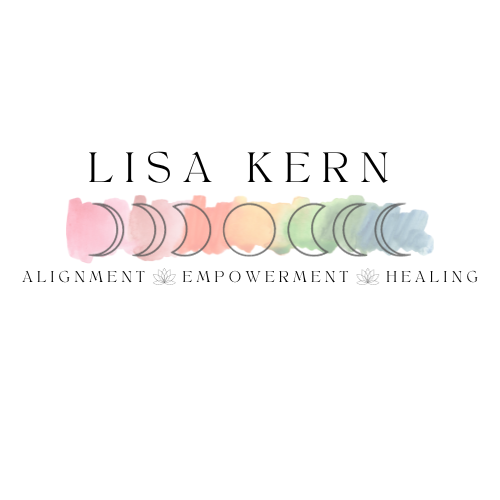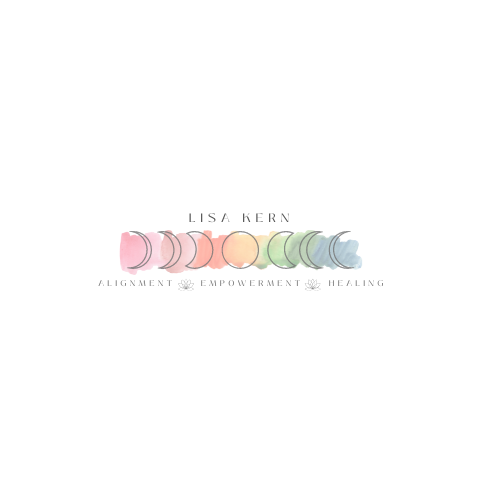From Panic to Peace
Today, we’re diving into the basics: What is reiki, and how does it work? I’ll also share a bit of my personal story about how Reiki found me and changed my life. If you’d prefer to listen along, tap the link below!
What is Reiki?
So, what exactly is Reiki? Reiki is a form of energy healing that originated in Japan in the early 20th century. The word "Reiki" comes from two Japanese words: "Rei," which means "universal," and "Ki," which means "life energy." Essentially, Reiki is the practice of channeling universal life energy to promote healing and balance in the body, mind, and spirit.
Reiki is based on the idea that we all have a life force energy flowing through us, and when this energy is balanced and free-flowing, we experience health and well-being. Conversely, when our energy is blocked or imbalanced, it can lead to physical, emotional, or mental distress.
How Does Reiki Work?
At its core, Reiki is based on the idea that life energy flows through all living things. The metaphysical answer is that during a reiki session, the practitioner uses their hands to channel energy into the recipient’s body, promoting healing and balance. This can be done with hands-on touch or with the hands hovering just above the body. The recipient typically lies down fully clothed, in a comfortable and relaxed position.
The reiki practitioner acts as a conduit for the universal life energy, directing it to where it’s needed most. This energy flows through the practitioner’s hands and into the recipient’s body, helping to clear energy blockages and restore balance.
Before I get into the more scientific explanation of how Reiki works, I want to share one of my favorite quotes by Maryam Hasnaa.
Taking the Woo Out of It (for a minute!)
There is sometimes a misconception that Reiki practitioners are mystical healers with special powers. In reality, a Reiki practitioner is attuned to Reiki energy, meaning they have undergone training to open their energy channels and act as a conduit for channeling energy. The energy does not come from the practitioner themselves.
While Reiki is often considered a spiritual or metaphysical practice, there are scientific principles that can explain its effects. Our bodies are made up of energy fields and electromagnetic frequencies, and stress, illness, and emotional turmoil can create disruptions in these energy fields.
Reiki works on the principle of biofield therapy. The biofield is the energy and information field surrounding and interpenetrating the human body. Reiki helps realign and balance the biofield, promoting relaxation and healing. Studies have shown that Reiki can activate the parasympathetic nervous system, responsible for rest and recovery, reducing stress, lowering blood pressure, and enhancing the body's natural healing processes.
Benefits of Reiki
Physical benefits: Many people experience relief from pain, improved sleep, and faster recovery from injuries or surgeries.
Emotional benefits: Reiki can help reduce stress, alleviate anxiety, and provide emotional clarity, helping you navigate life’s challenges with a calmer mind.
Spiritual benefits: Reiki can deepen your connection to yourself and the universe, enhance your intuition, and support your spiritual growth.
I’ve obviously seen firsthand how Reiki can transform lives. Of course, for some people, the changes are subtle, like they are less reactive at home or they report sleeping better. And some people have more profound shifts in their lives. They are finally able to walk away from that toxic relationship, and they make the connection of how they have been conditioned to play small and not trust themselves. Others have completely changed every aspect of their lives for the better.
My Reiki Story
For me, Reiki was a profound awakening. I wasn’t into spirituality at the time, but I was experiencing a lot of change and anxiety in my life.
In my early thirties, my life seemed perfect on paper—married, two healthy kids, a home, and a master's degree with a good job as an Occupational Therapist. Despite all this, I felt a nagging sense that something was missing. Then, I started experiencing serious panic attacks randomly, which became debilitating.
I sought natural remedies and, by chance, found a Reiki practitioner. In my first session, I learned that my anxiety was linked to an imbalance in my heart chakra from long-suppressed grief after my mom's death. This realization was revolutionary and marked the beginning of my healing journey. Reiki lifted a weight off my chest, making me feel lighter and able to breathe easier. From then on, I made it my mission to learn about the energetic body, stored emotions, and the subconscious mind to help others find more joy, ease, and peace.
What to Expect in a Reiki Session
Each reiki session is unique, but most people find it deeply relaxing. You might feel a warm or tingling sensation where the practitioner’s hands are placed, or you might feel the energy moving through your body in different ways. Some people even fall asleep during the session, which is normal and can be a sign of deep relaxation and healing.
As I shared, I felt like a weight was lifted, which is also a common report. After a session, you might feel a sense of calm and clarity, or you might notice that you’re more in tune with your emotions and body. The effects of reiki can be immediate, but they can also unfold over the days and weeks following a session.
To recap, Reiki is a powerful form of energy healing that can benefit your physical, emotional, and spiritual well-being. Whether you’re seeking relief from stress, looking to deepen your spiritual practice, or simply curious about energy healing, Reiki offers a gentle and effective approach.
If you’re interested in experiencing reiki for yourself, definitely reach out! I offer in-person and distance sessions. Or, seek out a qualified practitioner in your area!





